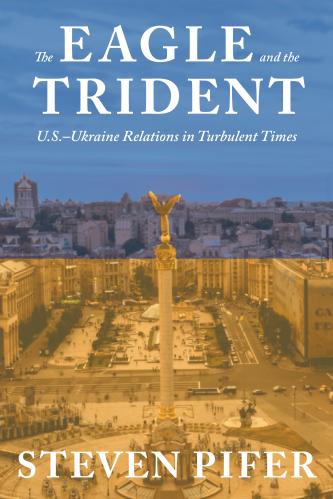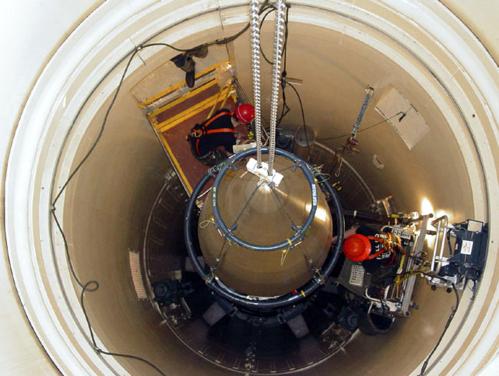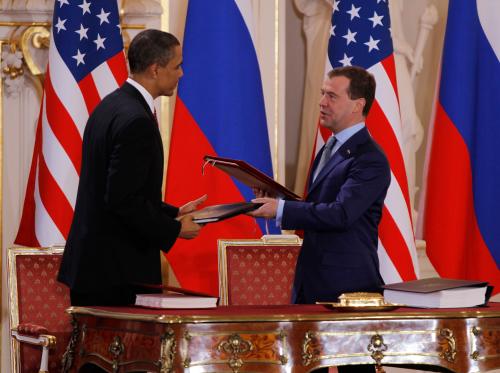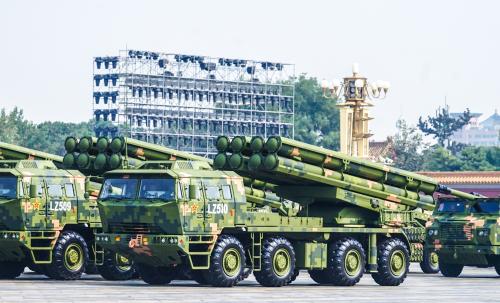President Trump has repeatedly made clear his desire to improve the troubled U.S.-Russia relationship. There is a straightforward proposal that he could make that would do so, one to which President Putin would agree and which would enhance U.S. security: Extend the 2010 New Strategic Arms Reduction Treaty (New START).
What’s stopping Mr. Trump? Perhaps his own national security adviser.
New START’s limits took full effect in February. They constrain the United States and Russia each to no more than 1,550 deployed strategic warheads and no more than 700 deployed strategic missiles and bombers. The sides have met those limits.
The treaty contains an array of verification measures, including data exchanges, notifications, and on-site inspections. Those provisions ensure that any significant cheating would be discovered and give the U.S. military invaluable information about Russian strategic forces, information that could cost tens of billions of dollars to acquire by other means.
New START expires by its terms in 2021. The treaty contains a provision, however, that allows it to be extended by up to five years. All that would require is agreement by the U.S. and Russian presidents.
If the presidents do not extend New START, and the endangered 1987 Intermediate-range Nuclear Forces Treaty collapses, as appears likely, in 2021—for the first time in nearly 50 years—there would be no agreed limits constraining U.S. and Russian strategic forces. That would occur at a time when Russia has hot production lines churning out new strategic nuclear weapons.
Mr. Putin raised the issue of New START extension in his phone call with Mr. Trump in January 2017. The issue arose at the Helsinki summit in July and again during the August 23 meeting between National Security Advisor Bolton and his Russian counterpart in Geneva. Asked after the meeting about extending New START, Mr. Bolton saw three options: extend New START, renegotiate the treaty, or return to the model of the 2002 Moscow Treaty on strategic arms.
Only the first option—extension—makes sense.
The primary reason to renegotiate New START would be to get something more of interest to the United States. However, just as U.S. officials would have their wish list, Russian officials would come to the negotiating table with their own demands, beginning with limits on missile defense—which Washington adamantly opposes. A renegotiation would begin a years-long process with, at best, uncertain prospects of success.
The odds of getting Russia to agree to something like the Moscow Treaty are even dimmer. That agreement limited only operationally deployed strategic warheads. The Russians would not accept such an approach today. They want to constrain strategic missiles and bombers.
The Moscow Treaty, moreover, had other major flaws. It provided no agreed definitions or counting rules. As a result, it was unclear if the U.S. and Russian militaries even counted the same things within the warhead limit. Did Russia comply with the limit? We could not know, since the Moscow Treaty had no verification measures of any kind.
New START extension thus offers the only reasonable course. Unfortunately, Mr. Trump’s comments to date suggest he does not he understand the treaty’s advantages.
He may receive little help from his National Security Council. Mr. Bolton—who negotiated the Moscow Treaty—ardently opposed New START. A key NSC senior director, Tim Morrison, is a former Senate staffer who tried to block New START’s ratification.
The treaty makes sense for U.S. security today and the foreseeable future.
Mr. Bolton expressed various reasons for opposing New START. He disagreed with limiting strategic missiles, saying that would constrain U.S. conventional capabilities. The U.S. military, however, did not want to put conventional warheads on strategic ballistic missiles. Mr. Bolton claimed that New START would hinder missile defenses, but the treaty’s only constraint on missile defense is to ban the conversion of intercontinental ballistic missile silos to hold missile interceptors, which the Missile Defense Agency said would be more expensive than building new silos. Mr. Bolton also did not like the fact that New START provided for equal limits, suggesting that the United States should be entitled to more nuclear weapons than Russia.
Mr. Bolton’s arguments did not carry the day in 2010. The Senate voted 71-to-26 to give its consent to ratification. New START made sense for U.S. security in 2010. The treaty makes sense for U.S. security today and the foreseeable future.
Extending New START’s limits and transparency measures would cap the strategic nuclear arms competition and enable the United States a continuing flow of information about Russian strategic forces in the early 2020s. It would allow Washington and Moscow more time to figure out their future strategic relations. It would have the support of the U.S. military, giving Mr. Trump the political cover he may need for any agreement with Mr. Putin. And it would score a positive on the difficult U.S.-Russia agenda.
New START extension should be a no-brainer, especially for one who wants to do something with Russia. Mr. President?







Commentary
Want to improve relations with Russia? Here’s a START
September 6, 2018